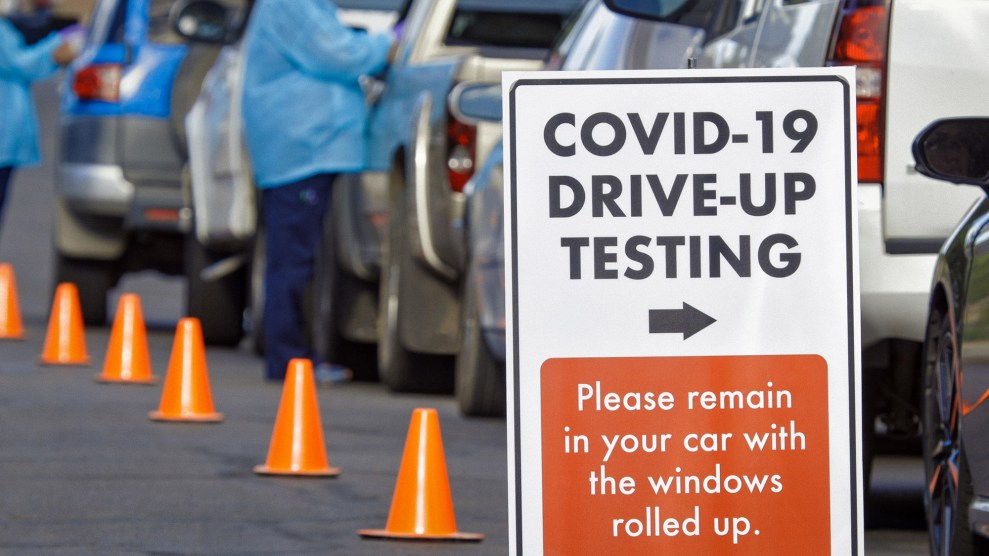
Medical personnel leaving the emergency room at New York-Presbyterian Lower Manhattan Hospital on WednesdayMary Altaffer/AP
Beyond social distancing and washing our hands, how can we prevent the worst-case coronavirus scenario? Trevor Bedford, the superstar epidemiologist who figured out how the virus spread in Washington state, has some ideas in this thread:
I've been mulling over the @MRC_Outbreak modeling report on #COVID19 mitigation and suppression strategies since it was posted on March 16. Although mitigation through social distancing may not solve things I believe we can bring this epidemic under control. 1/19
— Trevor Bedford (@trvrb) March 19, 2020
The upshot: The only way we’re really going to flatten the curve is:
a) a massive at-home testing effort
b) using cell phone location data to tell people who may have been exposed to self-isolate
c) allowing people who have known immunity (from having had it) back into the workforce once we know via blood test that they can’t get it or spread it anymore. That way, they can keep everything running while others fall sick.
Bedford based this plan on models in the sobering recent WHO report. The at-home testing component was part of South Korea’s successful response; the cell phone location part comes in part from work by infectious disease modeler Christophe Fraser.
Would Bedford’s plan take massive government coordination and cooperation by the American people? Sure. But it might be a lot better than the alternatives: complete lockdown or widespread disease.
“This is the Apollo program of our times,” Bedford writes. “Let’s get to it.”

















